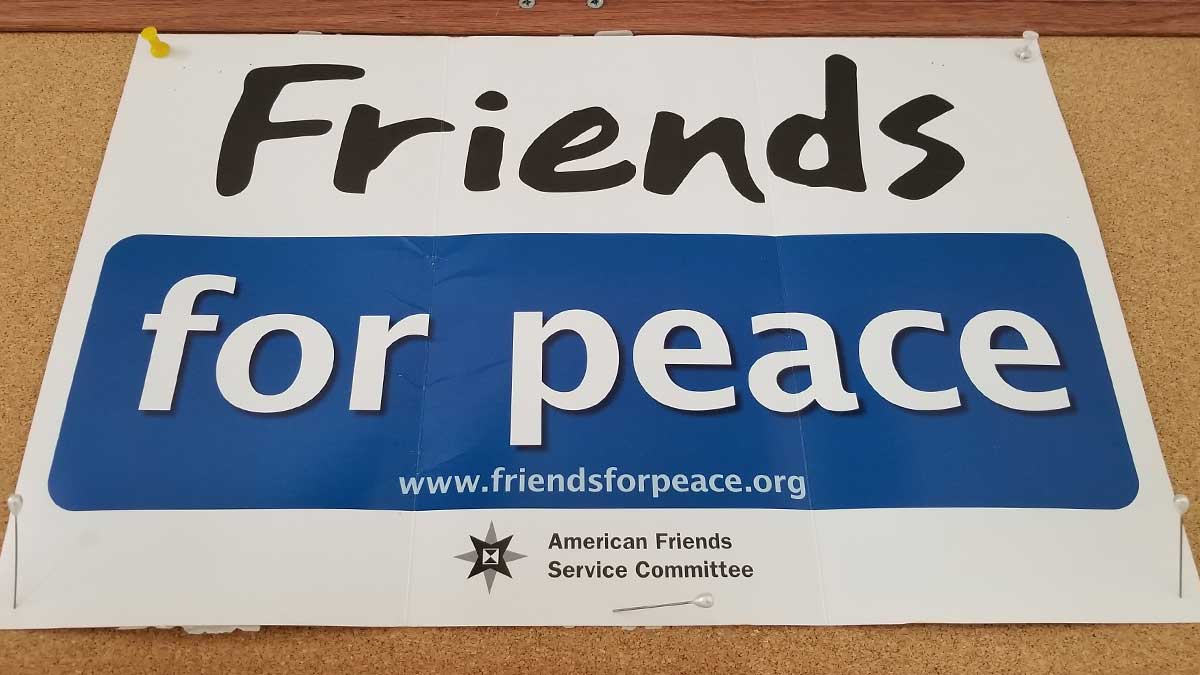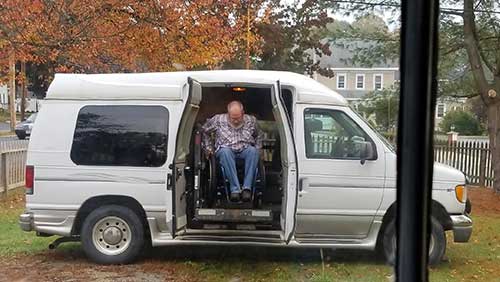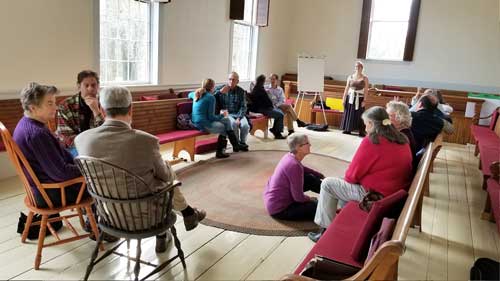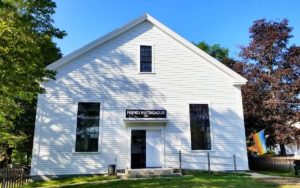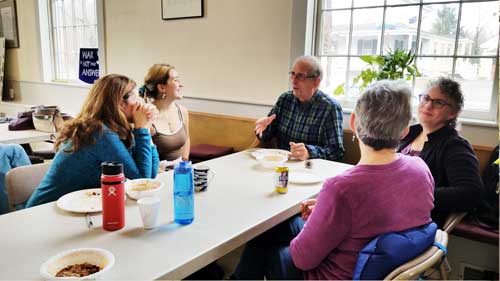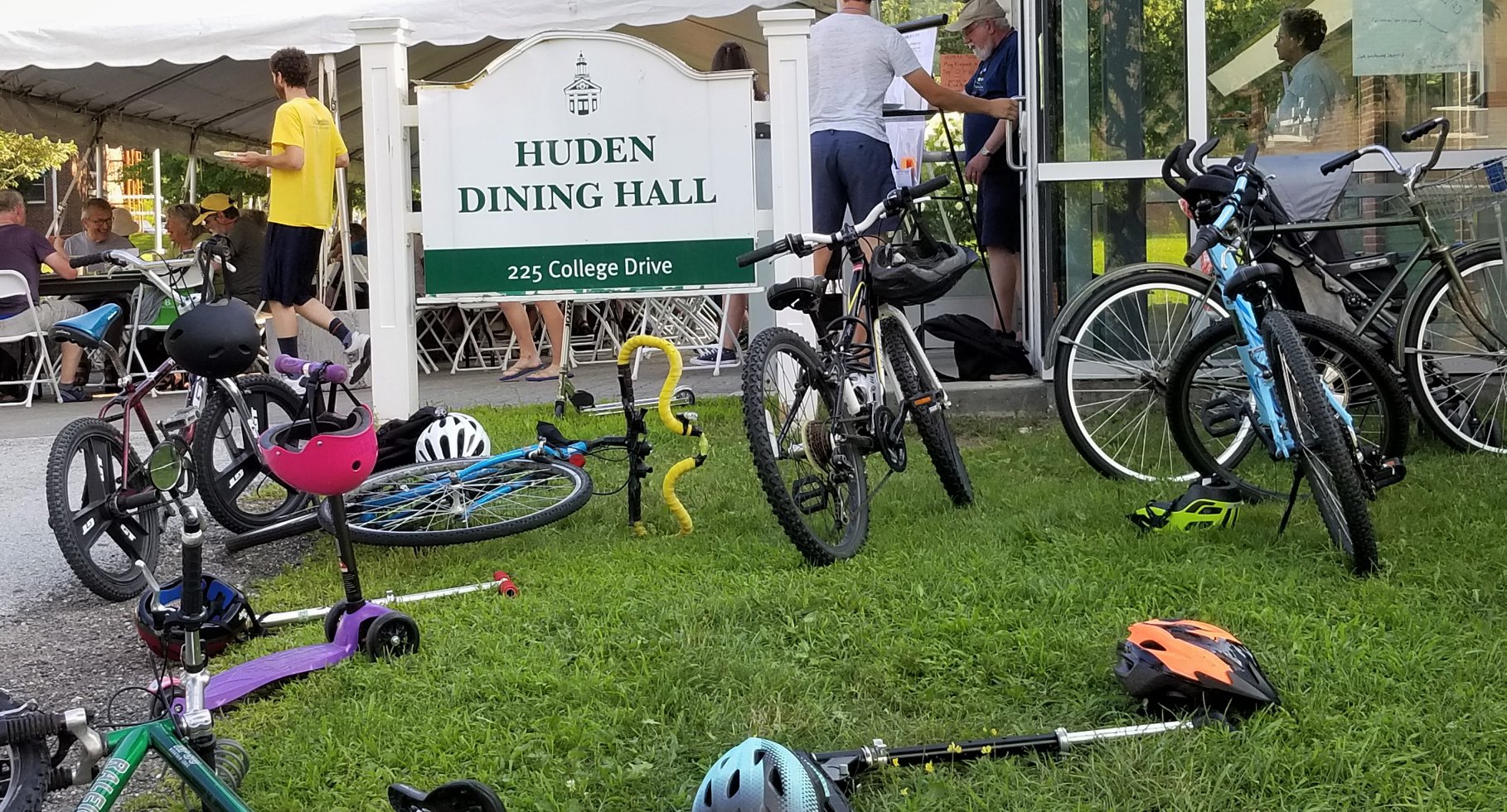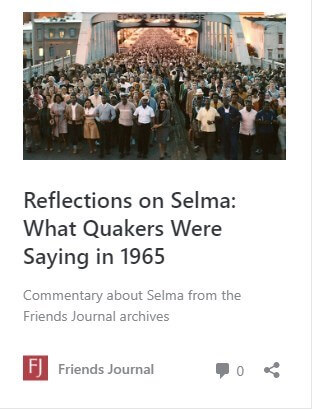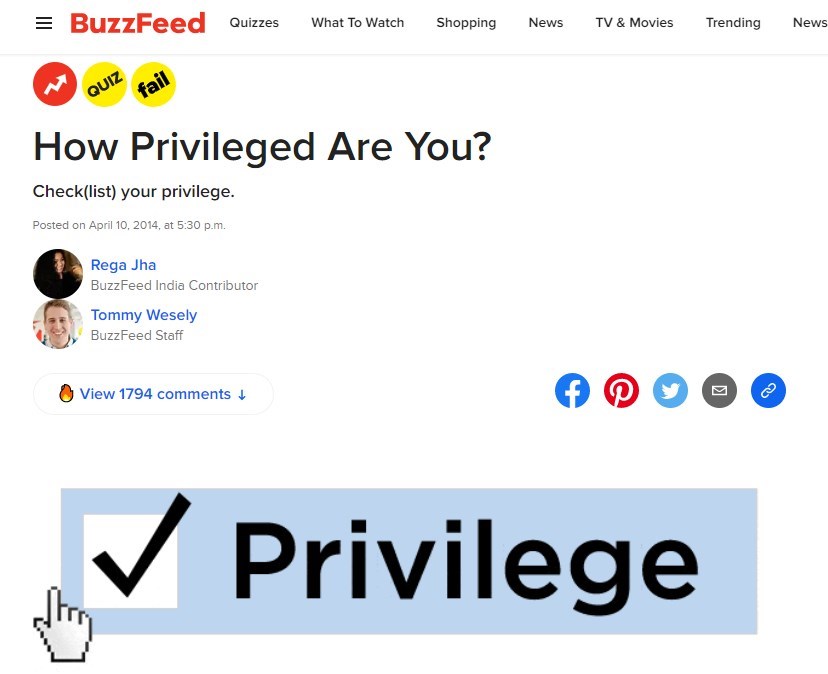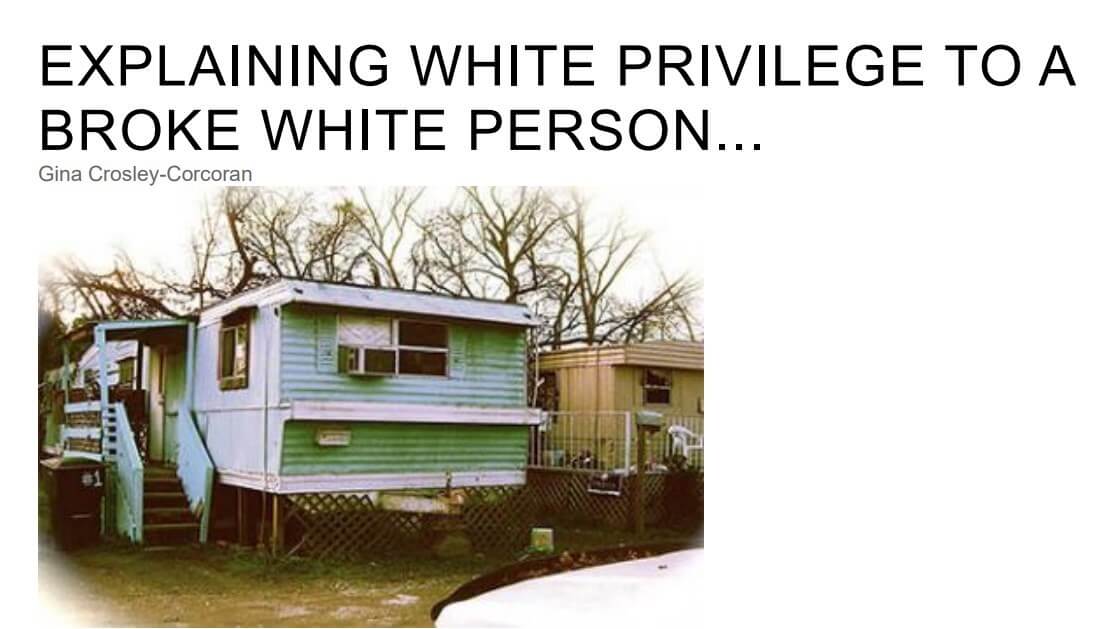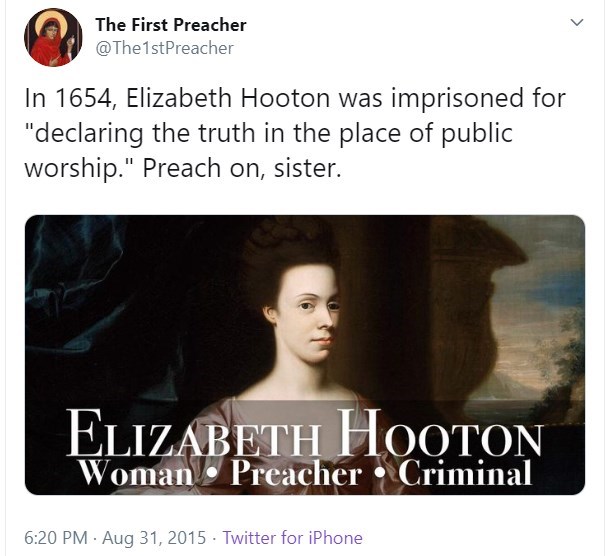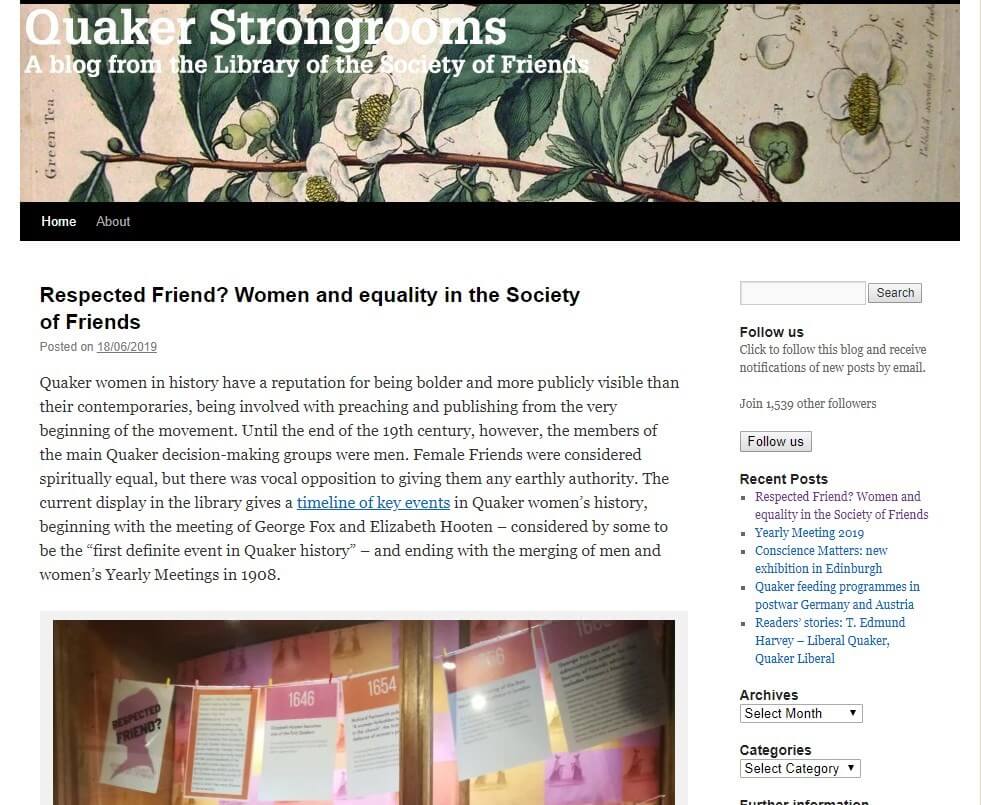Equality Testimony
What is the Equality Testimony?
Quakers have been proponents of equality for centuries. As we see “that of God in everyone” we can only see all as equal.
Social justice is important to us because it is equality in action.
And, like the other testimonies, each Friend may have a different interpretation and a different way of honoring equality in their life.
This page will attempt to feature all the aspects of equality that Quakers feel strongly about.
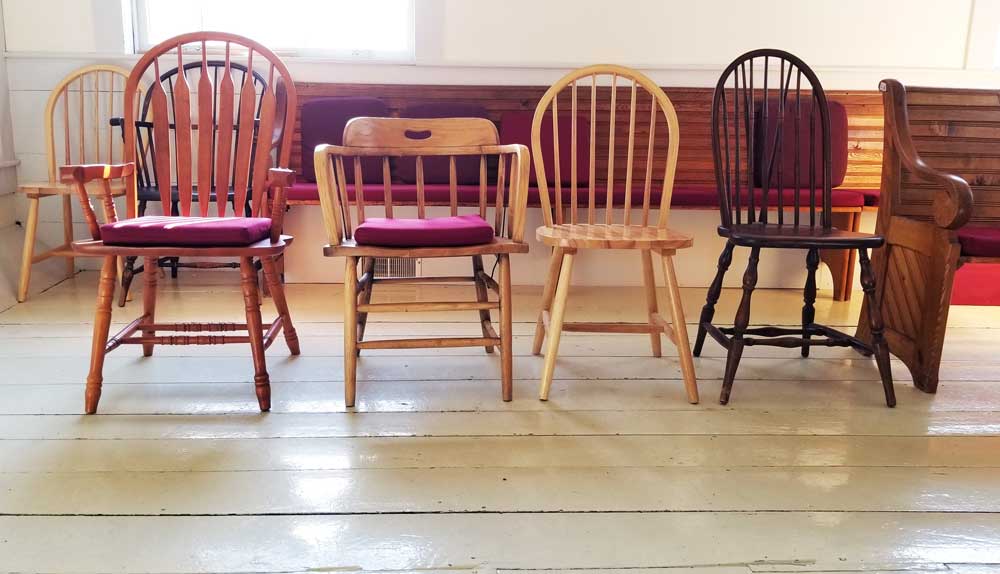
“All people are equal in the eyes of God.”
(chairs are people too!)
See our new Anti-Racism Resources page
Scroll down to see the White Privilege section
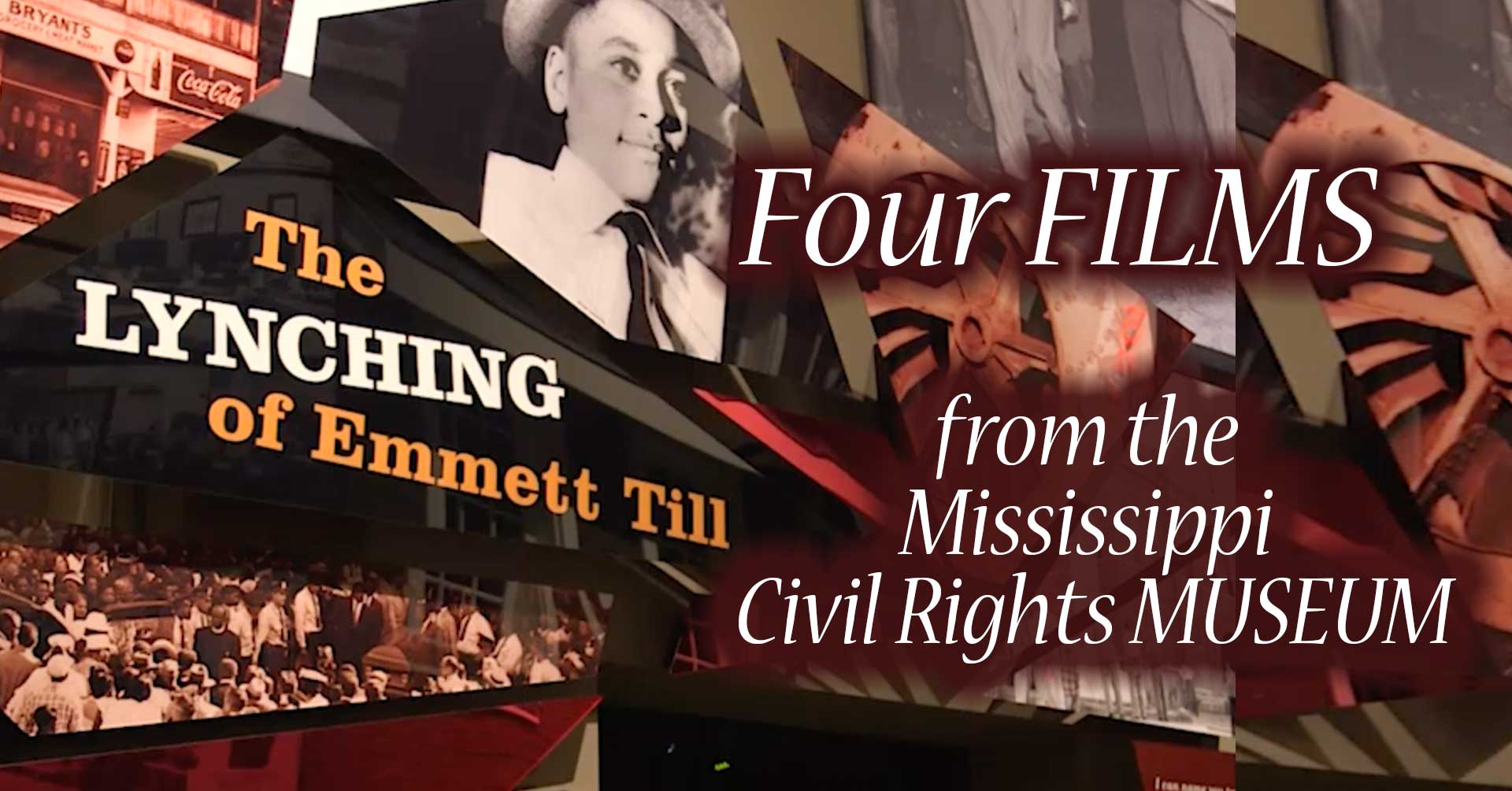
The Road to Ending Racism
The abolition of slavery did not eliminate racism, even among Quakers. Writing in the 1840s, Sarah Mapps Douglass, a Quaker abolitionist from a free black family in Philadelphia, argued publicly that many more blacks would attend Quaker meeting if they were not asked to sit on the segregated back bench and treated with coldness. Today we cringe hearing about this kind of treatment, but as we continue struggling to understand white privilege and the deep roots of racism, we know that raising consciousness takes time. It wasn’t until 1947 that all Quaker schools in the US admitted black pupils.
The Civil Rights Movement
Friends were active in the civil rights movement. Quaker Bayard Rustin, a Black Civil Rights activist, was a close associate of Martin Luther King, Jr., and an advocate for gay and lesbian rights. Rustin was born in West Chester, Pennsylvania and raised by his Quaker grandmother. He became a Quaker in 1936, shortly before moving to New York where he lived most of his adult life.
A pacifist, Rustin was instrumental in bringing non-violent resistance into the American Civil Rights Movement.
Racial Equality
The Society of Friends became the first organization to take a collective stand against both slavery and the slave trade, later organizing and leading international and ecumenical campaigns to end enslavement.
However, some Quakers did own slaves and the process of discontinuing the inhume practice was not without resistance and did not happen overnight. In 1776, the Philadelphia Yearly Meeting (the most important yearly meeting in USA at the time) prohibited members from owning slaves, and on February 11, 1790, Friends petitioned the U.S. Congress for the abolition of slavery. American Friends were active participants in the Underground Railroad.
Articles on Quakers, Racism, and Civil Rights
Let’s Talk About “Privilege”
What is White Privilege?
The term was coined by a white person (not really but her essay brought attention to it)
In 1988, Academic and Feminist, Peggy McIntosh wrote a 50-point essay, identifying and noting down some of the daily effects of privilege in her life as a white person living in the U.S. Although the underlying concepts date back at least as far as to the work of W.E.B Du Bois in the 1930s, it was McIntosh’s essay in the 1980s that made ‘white privilege’ gain popularity in social discourse.
(It is well worth noting, and with no small amount of irony, that it took the work of a white person to gain notoriety for a concept that many prominent black academics and intellectuals had been identifying and ‘unpacking’ for decades already.)
READ Peggy McIntosh’s essay here.
Watch this video to see a thought-provoking visual representation of general Privilege:
“Privilege is complex…”
Questions asked of the people in the video:
- If your parents worked nights and weekends to support your family, take one step back.
- If you are able to move through the world without fear of sexual assault, take one step forward.
- If you can show affection for your romantic partner in public without fear of ridicule or violence, take one step forward.
- If you have ever been diagnosed as having a physical or mental illness/disability, take one step back.
- If the primary language spoken in your household growing up was not English, take one step back.
- If you came from a supportive family environment take one step forward.
- If you have ever tried to change your speech or mannerisms to gain credibility, take one step back.
- If one of your parents was ever laid off or unemployed not by choice, take one step back.
- If you can go anywhere in the U.S., and find hair products you need and cosmetics that match your skin color, take one step forward.
- If you can make mistakes and not have people attribute your behavior to flaws in your racial/gender group, take one step forward.
- If you have ever traveled outside the United States, take one step forward.
- And Many More Questions…watch the video to the left to hear them all.
Let’s Talk About “Privilege”
Watch this video to hear thought-provoking questions and see a visual representation:
“Privilege is complex…”
Questions asked of the people in the video:
- If your parents worked nights and weekends to support your family, take one step back.
- If you are able to move through the world without fear of sexual assault, take one step forward.
- If you can show affection for your romantic partner in public without fear of ridicule or violence, take one step forward.
- If you have ever been diagnosed as having a physical or mental illness/disability, take one step back.
- If the primary language spoken in your household growing up was not English, take one step back.
- If you came from a supportive family environment take one step forward.
- If you have ever tried to change your speech or mannerisms to gain credibility, take one step back.
- If one of your parents was ever laid off or unemployed not by choice, take one step back.
- If you can go anywhere in the U.S., and find hair products you need and cosmetics that match your skin color, take one step forward.
- If you can make mistakes and not have people attribute your behavior to flaws in your racial/gender group, take one step forward.
- If you have ever traveled outside the United States, take one step forward.
- And Many More Questions…watch the video above to hear them all.
How Privileged
are You?
How Privileged
are You?
How Privileged are You?
Take the Quiz on BuzzFeed to find out.
The Quiz assesses your level of privilege based on:
-
skin color
-
gender
-
class background
-
education
-
sexual orientation
-
religion
-
body size and image
-
social, mental and physical abilities
How Privileged
are You?
How Privileged
are You?
How Privileged are You?
Take the Quiz on BuzzFeed to find out.
The Quiz assesses your level of privilege based on:
-
skin color
-
gender
-
class background
-
education
-
sexual orientation
-
religion
-
body size and image
-
social, mental and physical abilities
How Privileged
are You?
How Privileged
are You?
How Privileged are You?
Take the Quiz on BuzzFeed to find out.
The Quiz assesses your level of privilege based on:
-
skin color
-
gender
-
class background
-
education
-
sexual orientation
-
religion
-
body size and image
-
social, mental and physical abilities
“Years ago, some feminist on the internet told me I was “Privileged.”
“WTH?!?” I said.
I came from the kind of Poor that people don’t want to believe still exists in this country. Have you ever spent a frigid northern Illinois winter without heat or running water? I have. At twelve years old, were you making ramen noodles in a coffee maker with water you fetched from a public bathroom? I was.
Have you ever lived in a camper year round and used a random relative’s apartment as your mailing address? We did. Did you attend so many different elementary schools that you can only remember a quarter of their names?
Welcome to my childhood.” – Read the full article
Intersectionality
“Crenshaw wrote that traditional feminist ideas and anti-racist policies exclude black women because they face overlapping discrimination unique to them. “Because the intersectional experience is greater than the sum of racism and sexism, any analysis that does not take intersectionality into account cannot sufficiently address the particular manner in which Black women are subordinated.” – The Origin of the Term Intersectionality
Even though the term Intersectionality was coined by Black feminist scholar Kimberlé Williams Crenshaw in 1989, it’s still new to some Quakers. And while the condition existed during the time of Early Quakers from what we know, there was not a strong understanding or inclination to take that approach.
2016 TEDTalk by Kimberle Crenshaw – the woman who coined the term Intersectionality
Intersectionality
Even though the term Intersectionality was coined by Black feminist scholar Kimberlé Williams Crenshaw in 1989, it’s still new to some Quakers. And while the condition existed during the time of Early Quakers from what we know, there was not a strong understanding or at least not inclined to take that approach.
“Crenshaw wrote that traditional feminist ideas and anti-racist policies exclude black women because they face overlapping discrimination unique to them. “Because the intersectional experience is greater than the sum of racism and sexism, any analysis that does not take intersectionality into account cannot sufficiently address the particular manner in which Black women are subordinated.” – The Origin of the Term Intersectionality
2016 TEDTalk by Kimberle Crenshaw – the woman who coined the term Intersectionality
Gender Equality
Friends were one of the first religious groups with both women and men in the role of spiritual ministers. Elizabeth Hooton was possibly the first person to be convinced by George Fox (founder of Quakerism) and was an outspoken and daring preacher during the earliest days of the Quaker movement.
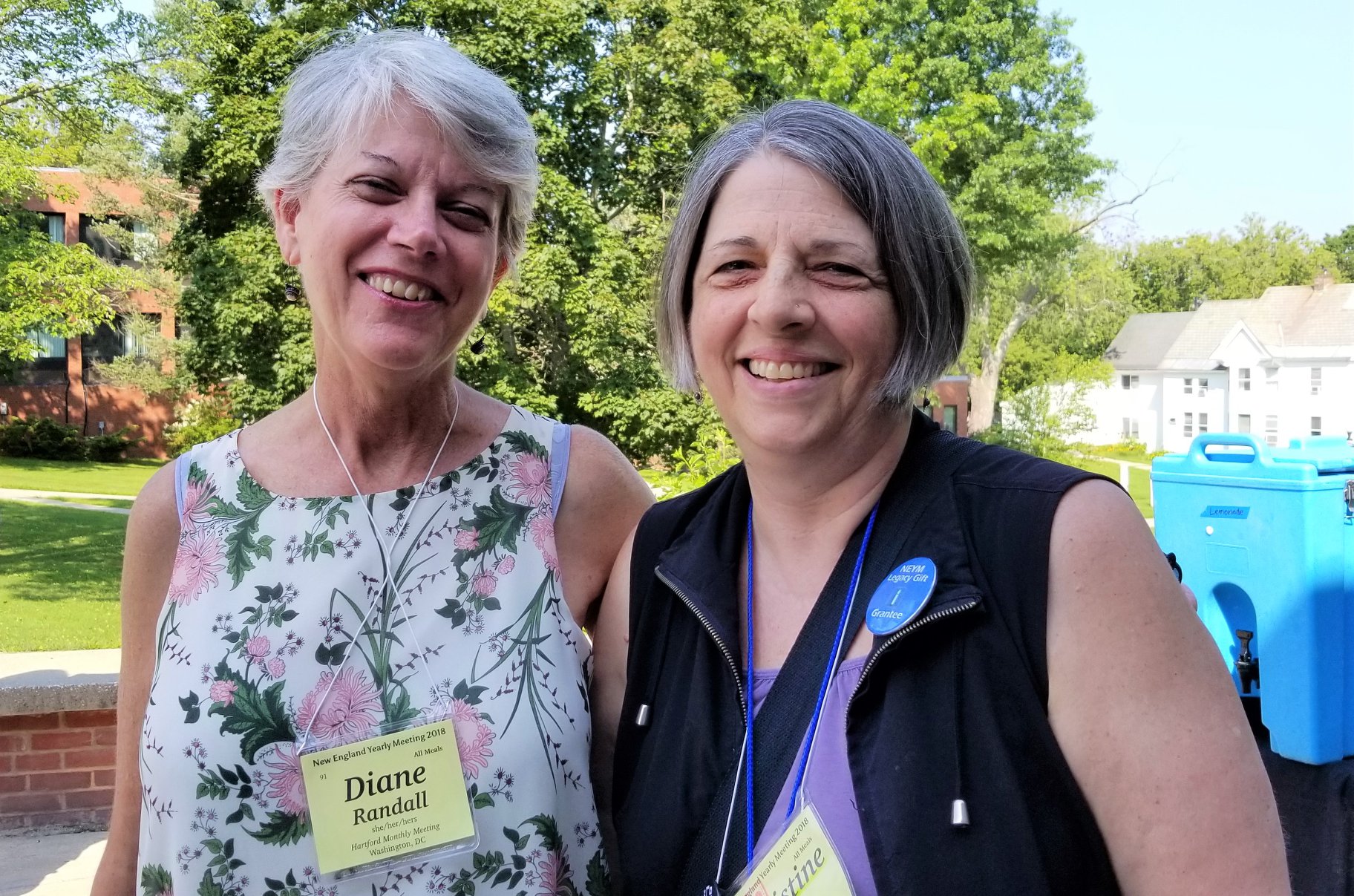
Diane Randall, Executive Secretary of the Friends Committee on National Legislation with Christine Green from Amesbury Friends Meeting.
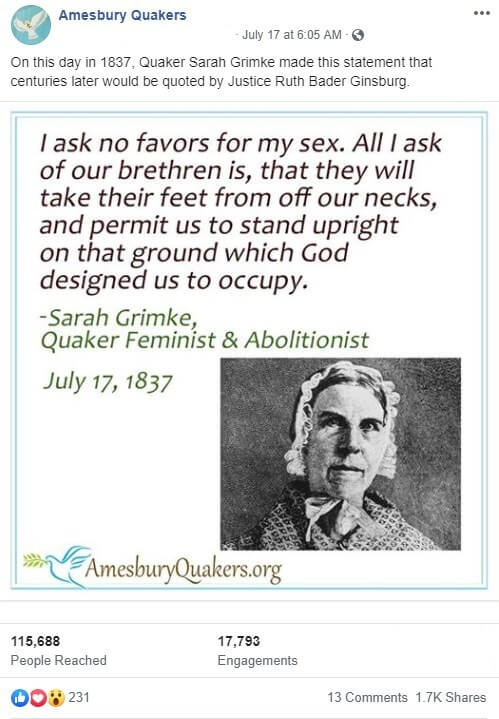
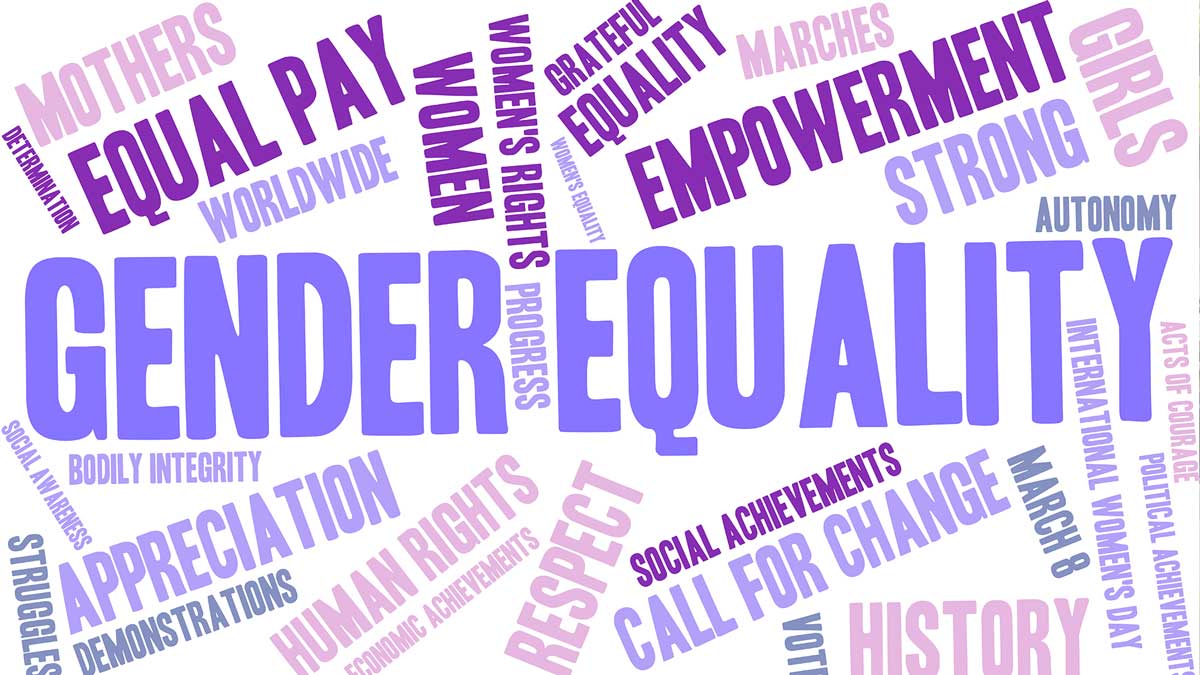
Quaker Women
Margaret Fell
Margaret Fell was another early leader and whom many consider a co-founder of Quakerism (with George Fox who she married).
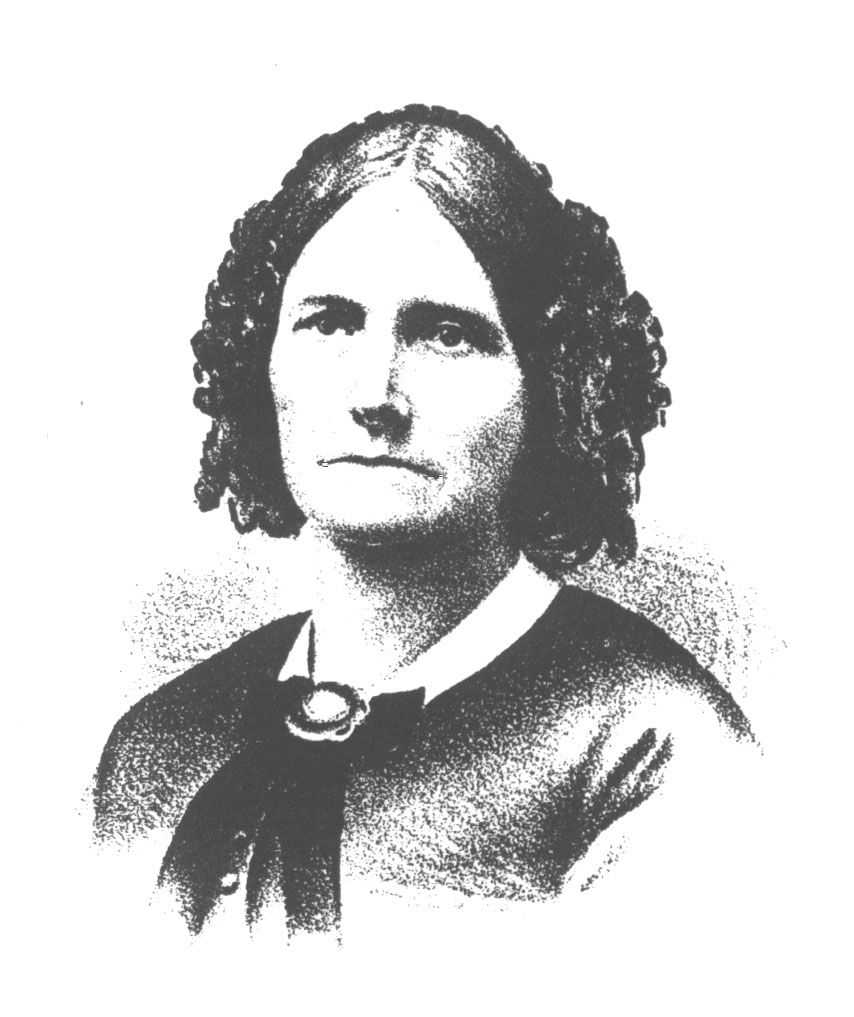

Mary Fisher
The first two people who came to what is now the United States to promote the Quaker Faith were Mary Fisher and Ann Austin.
Click the video below to learn more about Mary Fisher.
Leaders
From the very beginning of Quakerism women positioned themselves as spiritual equals and not only stepped up as preachers, but as you saw in the Mary Fisher video above, courageously traveled the world sharing their experience of the Light. Today Quaker women hold many leadership roles in Meetings at the monthly, quarterly and yearly level.
Suffragists
Quaker women were Suffragists. Four of the five women who organized the 1848 Seneca Falls Women’s Rights Convention were Quakers. Sarah Grimke was 56 years old at the time of the Women’s Rights Convention. Elizabeth Cady Stanton reached out to Sarah (as well as other women) to get input about the convention. For reasons we do not know, Sarah did not attend the convention.
To the left is our post of Sarah Grimke’s famous quote. It was shared by 1,717 people on Facebook.
Perhaps Not as Equal as We Thought:
“Respected Friend? Women and Equality in the Society of Friends”
“Quaker women in history have a reputation for being bolder and more publicly visible than their contemporaries, being involved with preaching and publishing from the very beginning of the movement.
Until the end of the 19th century, however, the members of the main Quaker decision-making groups were men. Female Friends were considered spiritually equal, but there was vocal opposition to giving them any earthly authority.”
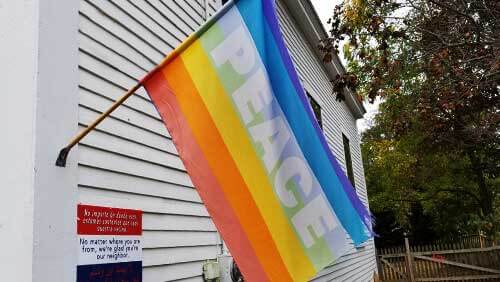
Lesbian, Gay, Bisexual, Transgender,
Queer Community
The wider Quaker community has, for the most part, accepted same-sex marriage and supports ending discrimination against the LGBTQ community.
We at Amesbury Friends Meeting stand in full support of LGBTQ Friends in our community, the worldwide Quaker community and, of course, the LGBTQ community of non-Quakers.
Humane Treatment of Institutionalized People
An aspect of equality, this is social justice work based on improving conditions for institutionalized people.
Those Institutionalized for Mental Illness
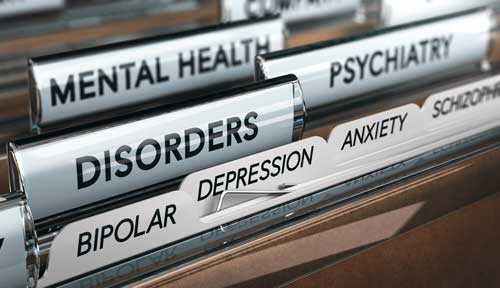

Those Incarcerated for Crimes


Humane Treatment of Institutionalized People
An aspect of equality, this is social justice work based on improving conditions for institutionalized people.
Those Institutionalized for Mental Illness


Those Incarcerated for Crimes


Virtual Worship Offers its Own Type of Equality
A 21st century form of equality was birthed during the Coronavirus outbreak in 2020.
With the country in a health crisis state of emergency, it was heartbreaking but necessary to close our Meetinghouses.
For some Friends, online worship doesn’t align with their spiritual practice. But others find it has “leveled the worshipping field.”

Quakers who have no meetings nearby are now able to join other Friends for this new kind of worship.
Friends from Other Parts of the World Come Together Using Web Video Conferencing
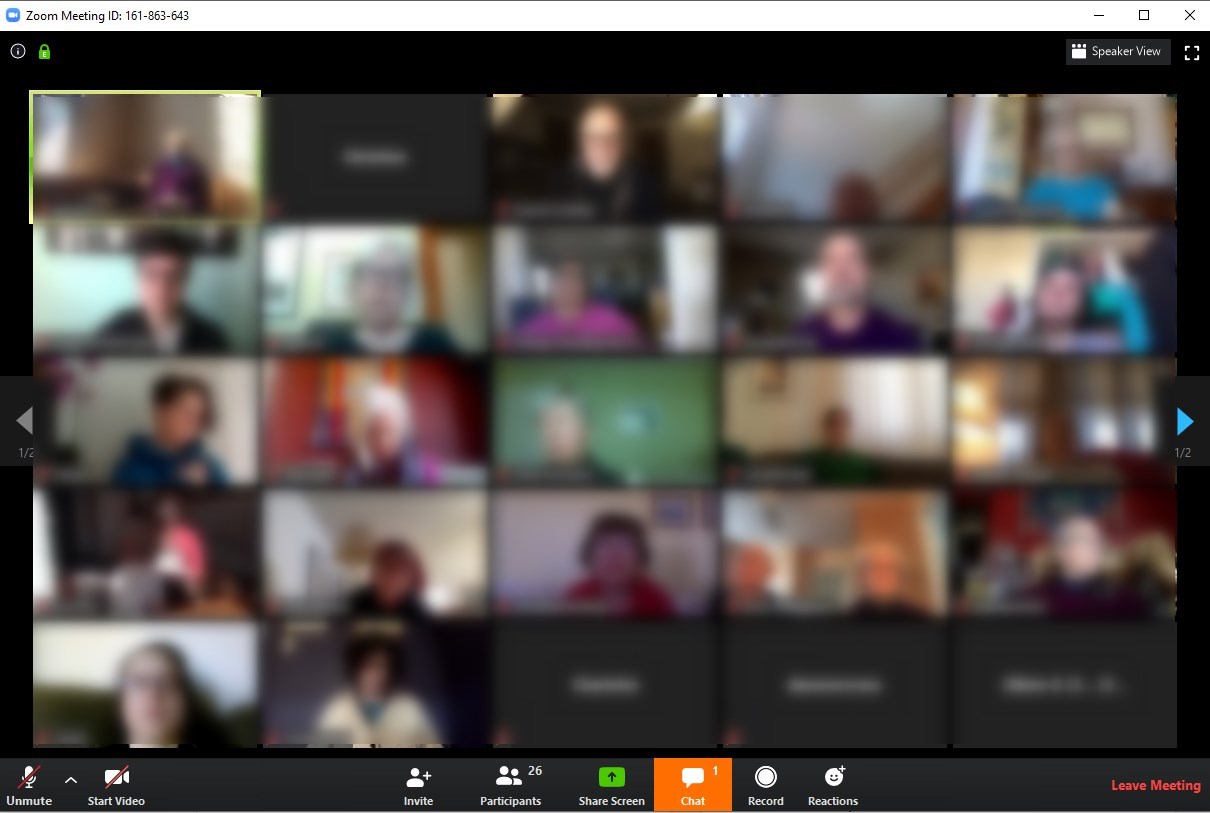
Learn More About Our Virtual Worship
The Equality Testimony might be the one with the widest range of individual perspectives.
Pages of the Other Testimonies:
